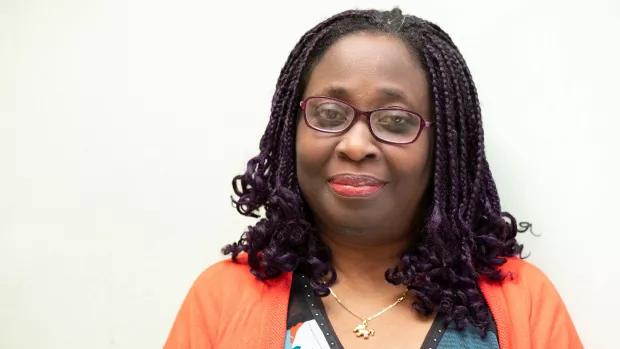
5 tips for newly diagnosed MSers
I was diagnosed with MS ten years ago, but my first relapse was four years earlier. Believe me when I say I know what limbo feels like.
Anxiety about the future. Waiting. Craving direction and support, yet not knowing what happens next. Does this sound like you? Hopefully these tips will help you over the next few weeks and months.
1. Prepare for your appointments
Your first appointment might take a few weeks to be arranged. Unless there are issues, you’ll then see the neurologist once a year, your MS nurse roughly six months after that.
In my experience, the appointment is a hundred times more helpful if you prepare:
- a list of symptoms that have troubled you (writing a symptom list/diary will help)
- a list of questions, including how to contact someone if any issues occur before the next appointment.
There’s a lot to take in, particularly when ‘cog fog’ kicks in so take someone with you. You’ll get your clinic letter a few weeks later (a summary of what was discussed and plan of action till they next see you). Keep letters in a folder!
If you think you’re having a relapse, you should contact your GP or MS nurse as soon as you can.
It’s always important to remember that you have the right to ask about getting treatment for your MS.
2. Always be honest with your specialists
Specialists will focus on how MS affects you. If there is something you really want to talk about that hasn’t been covered, don’t be shy about telling them. They may be experts in their field, but you are the expert of you.
Ask questions. Discuss life-impacting things, including work, study, benefits, your mental health etc. The more honest you are, the more they can help.
3. Be understanding with people’s reactions
You’ll have well-intentioned conversations with people, some even sending you ‘news’ about cures and other such nonsense. Not everyone understands MS - keep your expectations low and be prepared to do a lot of explaining.
Meanwhile, supportive new friends in the same MS boat are ready to welcome you online.
4. Do your research – but stick to trustworthy sources
There is so much MS fake news out there! Anyone is tempted when desperate. Stick to trustworthy sites. Ask yourself: when something calls itself ‘scientifically proven’, has the product been through a reputable scientific study?
The MS Society has information for newly diagnosed people, and you can find out more about treatments, care, and financial support.
5. Be prepared for change
No matter at what stage of MS you may be, even if you’ve been stable for years as I was, change will come. Sometimes it’s small sometimes it’s an upheaval. You won't always feel positive, in fact, sometimes you'll feel downright guilty, depressed and even annoyed by inspirational stories. But it’s okay to feel that way.
Line up your support network and check in with them. It’s okay to feel lost post-diagnosis. I promise you’ll get through it and eventually adapt.
Carla is a career coach and is the author of the My MS Bully and Me blog.


